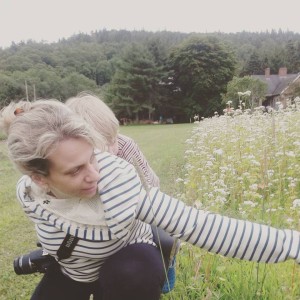The Tin Flute was among a squat pile of well-loved books my mother gave me when I was about 13 years old. Used, softly worn hardcover books in burgundy, tired green and powdery midnight blue: I ripped through them. I knew they were important to her, and I read them that way. Ate them up for story, for understanding, to connect with her when she was a reader my age. Also, because they were probably important, but in a way I couldn’t understand yet. I guess that was the point. They were the ticket onto the train forward. I didn’t know just how important one of them would be.
In Grade 12, at 17, my French teacher assigned us a new kind of homework: translation. I’d had plenty of experience with my little Harrap’s English-French dictionary – as an Anglophone kid in a French (not immersion, mind you) school, when things got tough on the assignment side of things, my teacher dad got me started getting my ideas down in English and make them happen in French. It had never occurred to me that I’d use the French-English side of the dictionary.
Mr. Frühling gave us a passage of Bonheur d’occasion to translate into English. I took it home, read it, and wrote it up. I didn’t need my Harrap’s so much. I dove into the innate and natural flow of my mother tongue out of a meaning and style I absorbed from the page. Then I played with it a little, and handed it in. The characters seemed a little familiar, but I couldn’t place them.
When he’d marked our assignments and was handing them back (I think I got an A), he told us what we’d been translating. The Tin Flute. Gabrielle Roy. I knew these people, only I’d met them in English, through my Anglophone mother.
He told us his story about translating the same passage. When he was in university, his French prof had set the excerpt as a translation assignment. My teacher took his homework to the library, and found the published English translation, copied it out, and handed it in. He got a terrible mark. When he protested that it was in fact the published translation, his teacher was taken aback, but scoffed “Just because it’s published doesn’t mean it’s good: it all depends who’s reading it.” We were all shocked: could our teachers be wrong in their marking? Did the reader really have that much power? And could the translator have that much freedom?
This was the teacher who told me to try translation out – the first official spark in my journey as a translator: two degrees, certification, teaching, talks, friends and colleagues, and hundreds of thousands of words later. I keep thanking him: I hope it doesn’t get on his nerves.
It’s the eve of International Translation Day, the Feast of St. Jerome, the patron saint of translators. Every year around this time I think of that story, and of the complex relationship between the text, the translator, and the reader, who brokers the many levels of meaning involved in global and personal relationships with language and its power.
Track 3 of the Doves’ album The Last Broadcast is a song called Words, which goes like this
Words, they mean nothing, so you can’t hurt me
As a person who works with words, I wonder: When is that true? Haven’t they found that emotional pain inflicts the same impact on the body as physical pain? I guess the only way words can’t hurt – or affect – us is when we don’t know what they mean. So let’s hear it for translators, who bring things into the realm of the graspable, the realm of feeling, and ultimately, of understanding; who pull connection out of the forms of language, and open it up to as many people as they can, using their own style to help readers find themselves and be comfortable in a foreign place. Or in my case, to not even know it’s a foreign place. To be as at home in The Tin Flute as in Bonheur d’occasion. Or vice versa.

Nicola Danby is a translator, writer and mum in her own right, based in Montréal. She is the Translation Editor and Blog Editor for online literary magazine carte blanche and a translator at EY, and is thinking hard about which books she’ll be passing on to her boys.